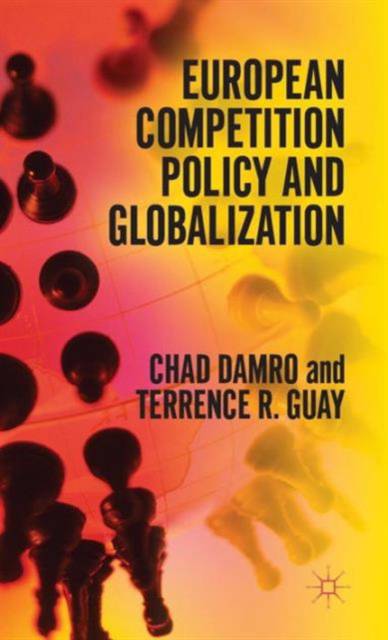
- Afhalen na 1 uur in een winkel met voorraad
- Gratis thuislevering in België vanaf € 30
- Ruim aanbod met 7 miljoen producten
- Afhalen na 1 uur in een winkel met voorraad
- Gratis thuislevering in België vanaf € 30
- Ruim aanbod met 7 miljoen producten
Zoeken
€ 111,95
+ 223 punten
Omschrijving
This book examines the domestic and international dimensions of European Union (EU) competition policy, particularly mergers, anti-competitive practices and state aids. The authors argue that important changes in EU competition policy are having profound effects on the global political economy, and these changes are best understood as European Commission responses to new domestic and international pressures. Using a two-level game analytical framework that is both intra-EU and global in scope, Damro and Guay investigate a wide variety of domestic and foreign public and private actors that interact in crucial ways to determine the development and implementation of EU competition policy. They address this broad question: In what ways do changing external and internal factors affect the evolution of the EU's competition policy and the role that the Commission plays in it? Among the conclusions is that the EU and particularly the European Commission has become a leading global regulator.
Specificaties
Betrokkenen
- Auteur(s):
- Uitgeverij:
Inhoud
- Aantal bladzijden:
- 146
- Taal:
- Engels
Eigenschappen
- Productcode (EAN):
- 9780230293878
- Verschijningsdatum:
- 29/02/2016
- Uitvoering:
- Hardcover
- Formaat:
- Genaaid
- Afmetingen:
- 140 mm x 216 mm
- Gewicht:
- 331 g

Alleen bij Standaard Boekhandel
+ 223 punten op je klantenkaart van Standaard Boekhandel
Beoordelingen
We publiceren alleen reviews die voldoen aan de voorwaarden voor reviews. Bekijk onze voorwaarden voor reviews.











